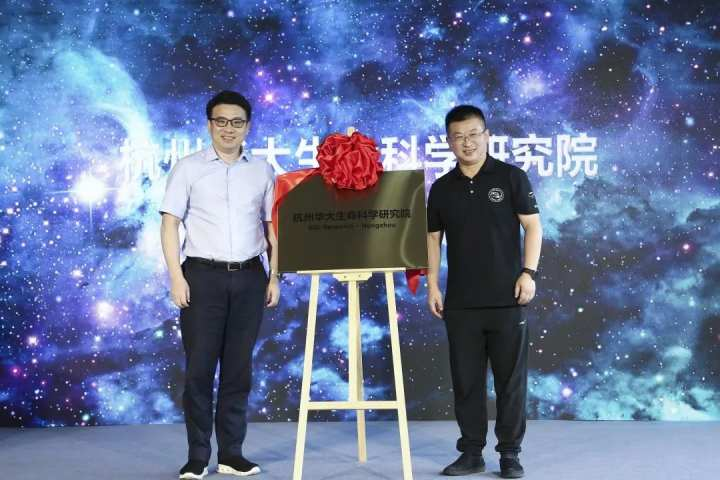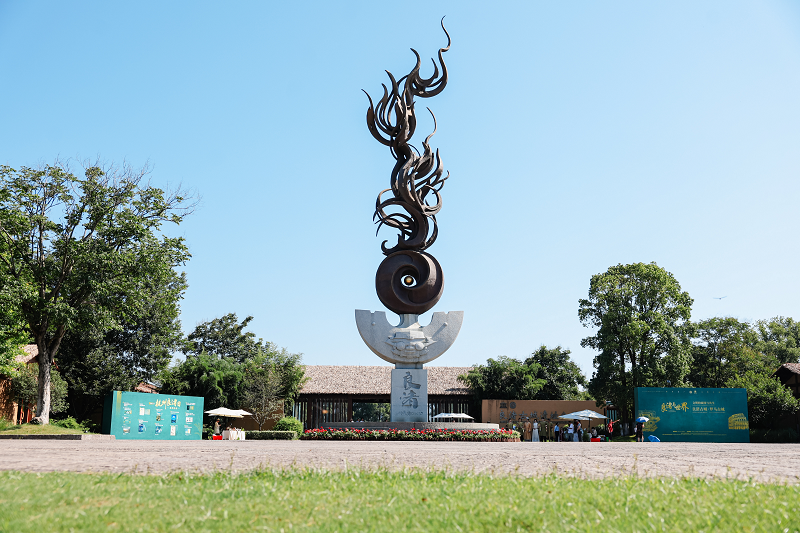Genomics research institute in Hangzhou opens

Yin Ye, CEO of BGI Group, holds an issue of Science, which shows the group's new findings on its cover. [Photo/Zhejiang Daily]
The Hangzhou BGI Research Institute, which focuses on the research of life sciences, was launched in Xihu district, Hangzhou, capital of East China's Zhejiang province, on Sept 2.
At the ceremony to unveil its plaque, the institute released one of the products of its latest research endeavor -- an illustration of axolotl brain regeneration.

Representatives unveil the plaque of the Hangzhou BGI Research Institute. [Photo/Zhejiang Daily]
Scientists have found out that the axolotl, a critically endangered salamander, has the ability to regenerate its brain, and this finding could lead to the creation of new ways to treat neurological injuries and degenerative diseases in humans, said Gu Ying, a researcher of the Hangzhou BGI Research Institute.
Led by Hangzhou BGI Research Institute, the study involved 17 organizations and institutes in China, the US and Denmark, and was published in the world's top academics journal Science.



